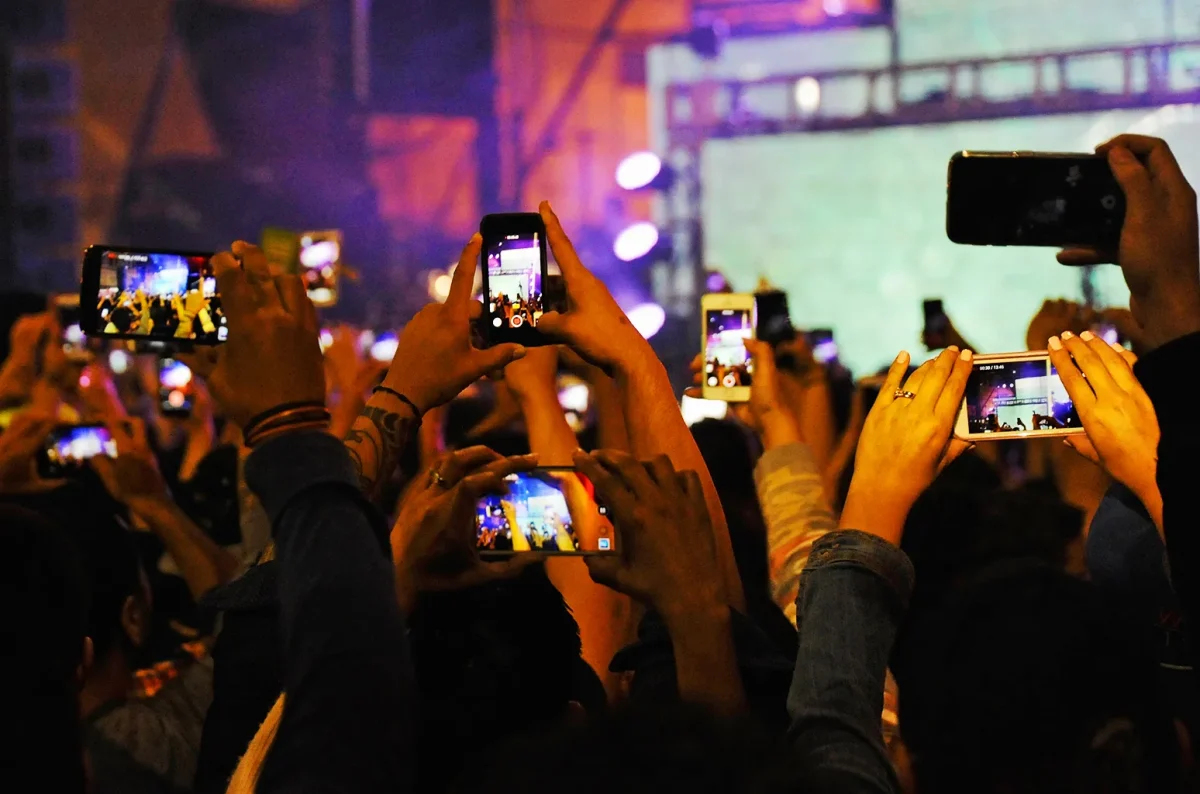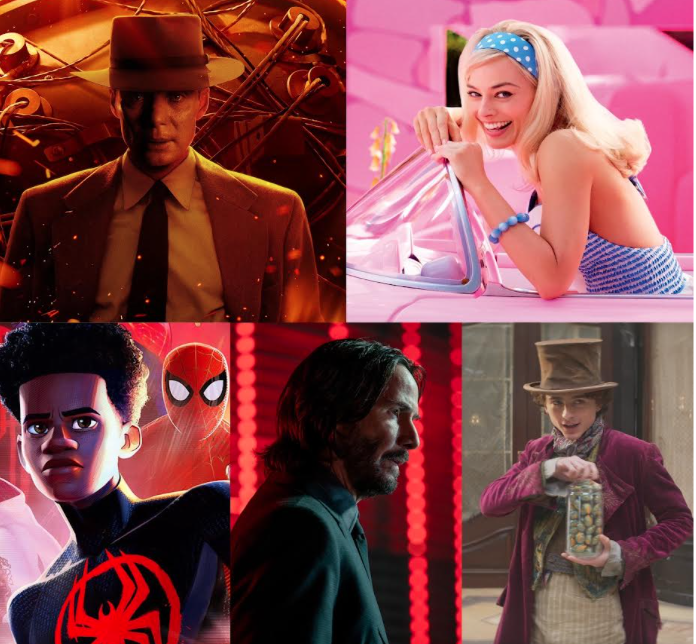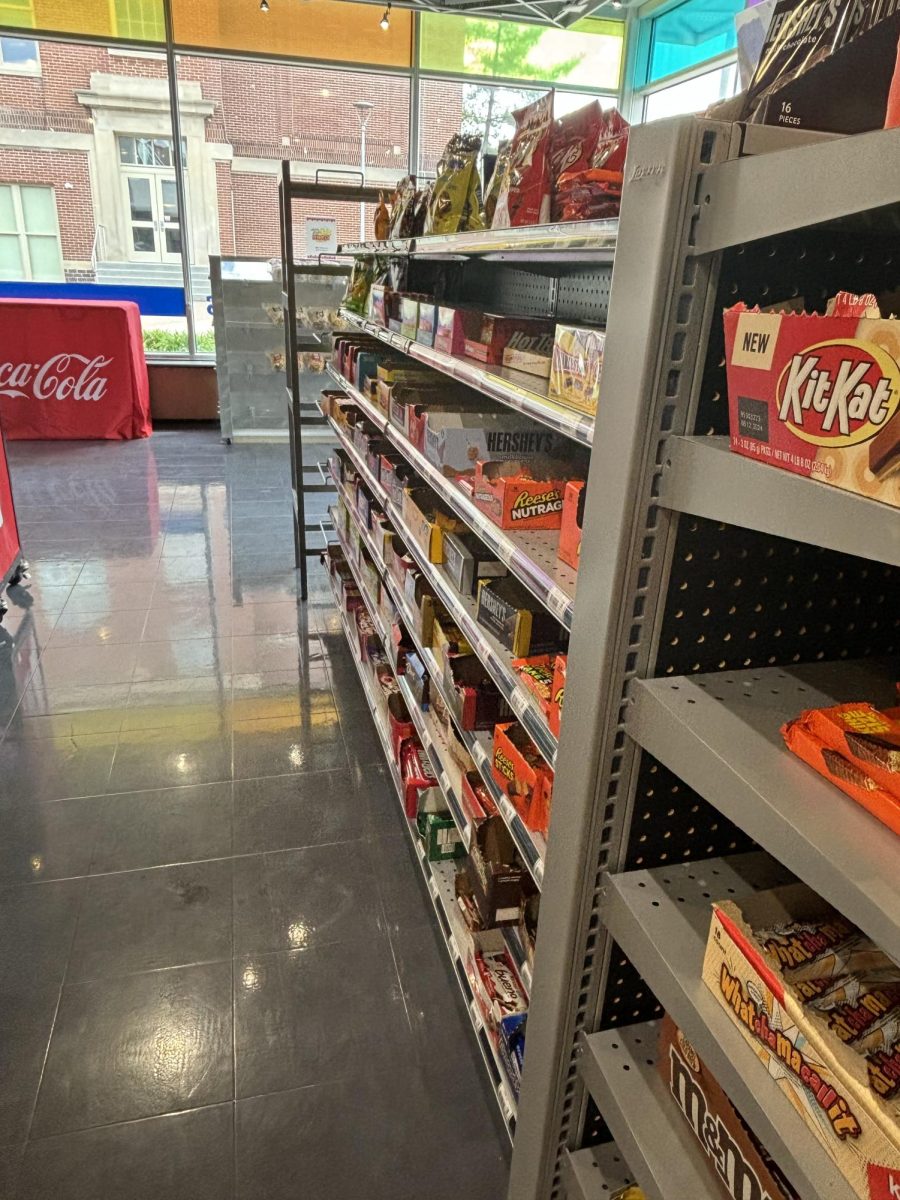You get tickets to see your favorite artist in concert – something you’ve been saving months for. You can hardly contain your excitement as you make your way to your spot on the floor surrounded by other fans. The lights dim and the fans cheer and scream as the curtain is raised, your eyes lighting up as they play your favorite songs.
But those around start shoving and pushing, trying to make their way to the front of the crowd despite just arriving before the main act. There are thousands of phones held up high as people try to get the best video to post to their social media. Others are being loud and obnoxious during quiet parts of the set, screaming at the artist to get attention. You try not to let this ruin your concert experience, but it ultimately makes you feel bitter.
This has become a common occurrence in the modern concert experience. Regardless of the artist you are seeing, many people are “ruining” live concerts.
Live concerts were once a safe space for music enthusiasts to come together and immerse themselves in the magic of live performances, but have now become a battlefield by lack of concert etiquette and respect.
Concert etiquette is a set of social norms observed by those attending musical performances. While usually unspoken and informal, they are essential for fostering a positive and immersive experience for both performers and audience members alike.
But in the age of smartphones and social media, the landscape of live concerts has undergone a significant transformation. From incessant phone use to disruptive behavior, the essence of the concert experience is fading away, leaving many nostalgic for the days of old-school concert etiquette.
One of the most glaring issues plaguing modern concerts is the huge presence of smartphones and the rising use of social media. Instead of being fully present in the moment, many concert-goers are more concerned with capturing the perfect Instagram story or Snapchat video. While there is nothing wrong with wanting to record your favorite artist, some will make it their goal to get as close as possible to the front of the stage, waving their phones around to get the best angle and disrupting those around them.
This self-centered and entitled behavior has been coined the term “main character syndrome” by Gen Z, meaning that people feel they are the central focus of attention in every situation, often at the expense of others’ enjoyment or safety.
This term reflects a cultural shift towards individualism and a desire for validation and recognition, particularly prevalent among younger generations who have grown up in the age of constant connectivity and social media.
This individualistic nature of some people has become more and more noticed by the masses, with videos blowing up on social media of this bothersome behavior.
Videos of artists like Mitski having to ask her fans to stop yelling inappropriate words at her, Laufey’s slow songs being ruined by screaming, and Steve Lacy smashing someone’s camera on stage due to someone throwing it at him. All of this just for the fleeting moment that maybe your favorite artist might notice you, for you to have your “main character” moment.
While there have always been concert disturbances, more and more people are noticing this behavior. Many people online believe this rise to be because of COVID-19 and the post-COVID-19 world we are living in.
This shift towards virtual interactions and digital dependency, worsened by the isolation and restrictions of the COVID-19 pandemic, may have contributed to the escalation of disruptive behavior at concerts.
According to the Statista website, a global poll conducted in March 2020 revealed that 70% of respondents used their smartphones more as a direct result of COVID-19. With limited opportunities for in-person socialization and live experiences during lockdowns, many individuals turned to social media as their primary means of connection and expression. As a result, the desire for validation and attention in online spaces may spill over into real-life situations, such as concerts, where individuals seek to broadcast their experiences for validation and recognition.
The absence of live events during lockdowns may have intensified the excitement and anticipation surrounding concerts, leading some attendees to prioritize personal documentation over respectful engagement with the music and the community.
In this ever-changing world with new advancements in technology, many are worried that this individualistic culture will continue to grow and cause more problems at not just live concerts, but many social events as well. To preserve the essence of the concert experience, it’s imperative for concert-goers to prioritize presence, mindfulness and consideration for others.
Rather than seeking validation through digital means or disrupting the experience for those around us, let us embrace the magic of live music and create spaces where everyone can fully immerse themselves in the moment.
By fostering a culture of respect and mindfulness, we can reclaim the concert experience as a place for music enthusiasts to come together and celebrate the love of live performances.







